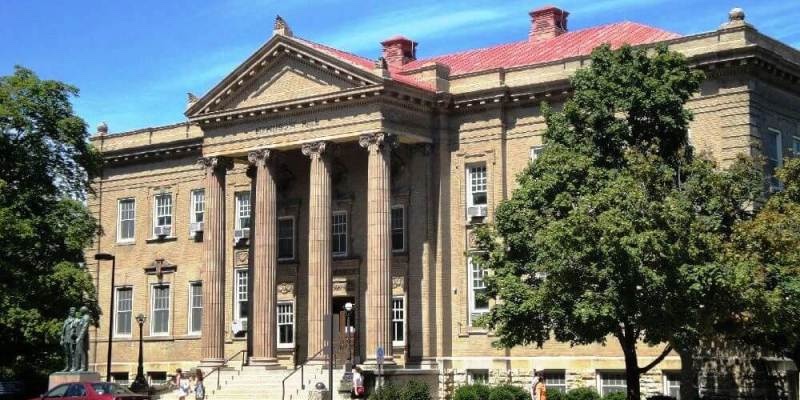KU Law school says ADF discussion of the First Amendment is ‘hate speech’
(The Sentinel) – Last week the University of Kansas student chapter of the Federalist Society invited Jordan Lorence, the senior counsel and director of strategic engagement at the Alliance…

(The Sentinel) – Last week the University of Kansas student chapter of the Federalist Society invited Jordan Lorence, the senior counsel and director of strategic engagement at the Alliance Defending Freedom (ADF), to speak to KU Law students about the First Amendment’s Establishment Clause.
Before he had even spoken, non-profit media outlet the Lawrence Times published a story with a KU Law student breathlessly labeling a speech that was yet to be given as “Hate Speech.” Then KU Law Associate Dean Dean for Academic and Student Affairs Leah Terranova fired off an email to the entire staff and student body of the law school likewise decrying the talk as “hate speech” 90 minutes before the start of Lorence’s talk.
Writing for the Faculty/Staff Diversity, Equity, Inclusion, and Belonging (DEIB) Committee, Terranova stated that the “legal positions of the ADF — particularly as they relate to the rights, freedoms, and humanity of the LGBTQ+ community and its individual members — do not align with the values of the law school. ADF has taken legal positions designed to criminalize homosexuality, demonize trans people, and degrade the civil rights of members of the LGBTQ+ community. As such, the interests and activities of ADF are antithetical to the inclusion and belonging we strive to achieve on our campus.”
“It is incredibly concerning that the dean of a prominent law school, which should be training future lawyers to persuade others through logic and legal principles, is instead actively working to suppress free expression on campus,” Lorence said in an email statement. “This is contrary to everything a law school should be teaching. We must restore a culture of free speech and civil discourse at KU and other law schools, or the future of the legal profession will remain in dire straits.”
ADF categorically denies the KU Law School allegations, mostly raised by the now widely-discredited Southern Poverty Law Center. Shortly after SPLC co-founder Morris Dees resigned amid numerous employee reports of “a systemic culture of racism and sexism within its workplace,” former employee Bob Moser stated that for he and other employees, it “was hard, for many of us, not to feel like we’d become pawns in what was, in many respects, a highly profitable scam.”
According to Moser, in 2019, when Dees resigned, the SPLC’s total endowment was in excess of $450 million.
KU Law arguably guilty of hate speech by its own definition
Terranova’s email gave a definition of “hate speech” that has KU Law itself arguably guilty of hate speech.
“The University of Kansas School of Law unequivocally condemns hate speech, which is commonly defined as ‘any form of expression through which speakers intend to vilify, humiliate or incite hatred against a group or a class of persons on the basis of race, religion, skin color, sexual identity, gender identity, ethnicity, disability or national origin.’ As a school of law at a public university, we are bound by the tenets of the First Amendment and its protection of freedom of speech and expression, including hate speech. Student groups are empowered to invite speakers who express a variety of viewpoints. We will continue to cultivate in our students the ability to engage with different beliefs and operate in a world where people can speak and think freely.”
The Sentinel reached out to Terranova asking exactly what evidence she had — before the speech had actually been given — that Lorence intended to “vilify, humiliate or incite hatred” against any particular group or any individual on campus.
The case could be made, per KU Law’s own definition, that — between the Lawrence Times article and Terranova’s email blast — they were attempting to “incite hatred” against anyone who agrees with ADF on religious grounds.
The Sentinel also asked Terranova if it was the intent of the law school to engage in the same sort of hate speech her email decried, and if not, how her email differed from what she had defined as hate speech.
As of publication, Terranova had not responded.



